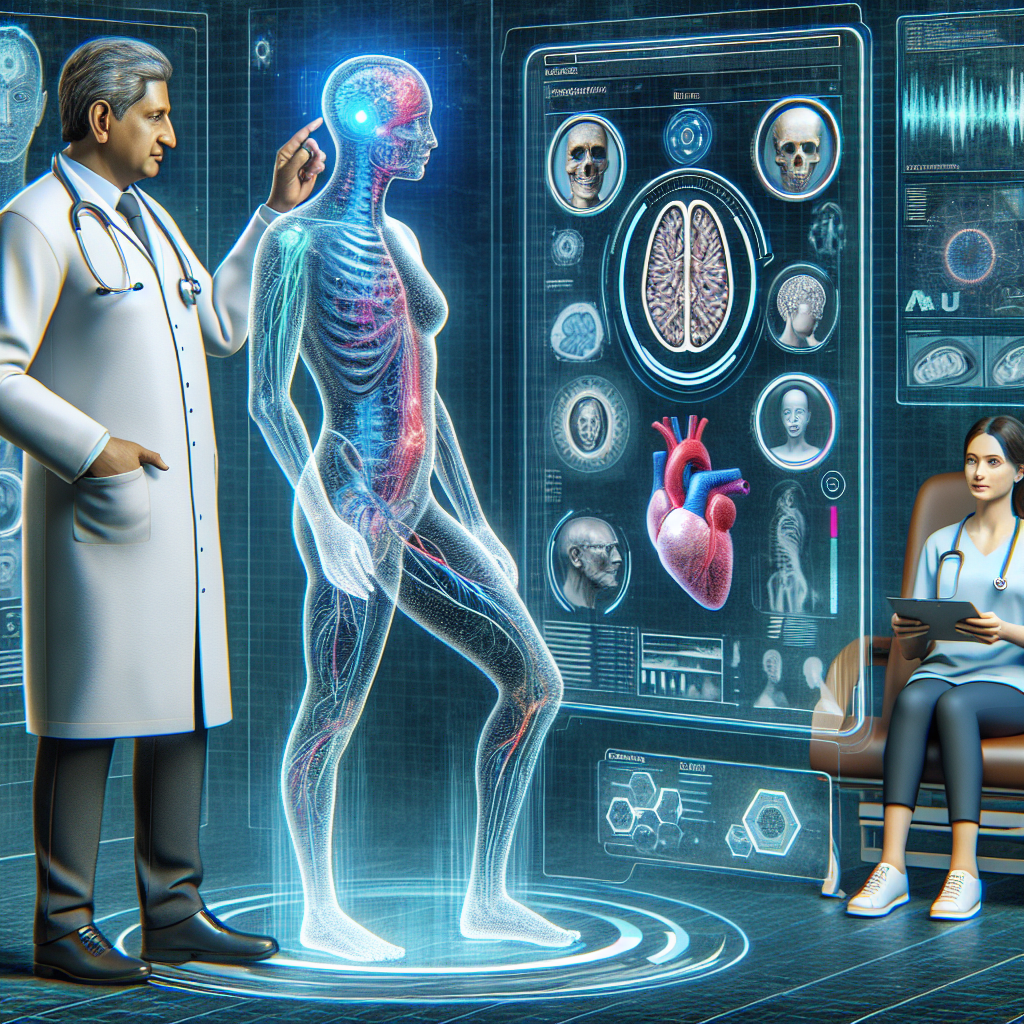The Impact of AI on Healthcare Delivery: Enhancing Patient Care and Medical Diagnosis
Artificial intelligence (AI) has revolutionized various industries, and healthcare is no exception. With the advancement of AI technologies, healthcare providers are now able to improve patient care, enhance medical diagnosis, and streamline operational processes. AI has the potential to transform the way healthcare is delivered, making it more efficient, accurate, and personalized. In this article, we will explore the impact of AI on healthcare delivery and how it is enhancing patient care and medical diagnosis.
Enhancing Patient Care
One of the key benefits of AI in healthcare is its ability to enhance patient care. AI-powered tools and systems can help healthcare providers to deliver more personalized and efficient care to patients. For example, AI can be used to analyze patient data and provide insights into a patient’s health status, helping healthcare providers to deliver more targeted and timely interventions. AI can also be used to predict health outcomes, allowing healthcare providers to proactively address potential health issues before they escalate.
AI can also help to improve the patient experience by providing more convenient and accessible care. For example, AI-powered chatbots can be used to provide patients with real-time support and information, reducing the need for in-person appointments and improving access to care. AI can also be used to automate routine administrative tasks, allowing healthcare providers to focus more on patient care.
Overall, AI has the potential to enhance patient care by improving the accuracy, efficiency, and accessibility of healthcare services. By leveraging AI technologies, healthcare providers can deliver more personalized and effective care to patients, leading to better health outcomes and improved patient satisfaction.
Enhancing Medical Diagnosis
Another significant impact of AI on healthcare delivery is its ability to enhance medical diagnosis. AI-powered tools and systems can help healthcare providers to accurately diagnose medical conditions and develop appropriate treatment plans. For example, AI can be used to analyze medical images, such as X-rays and MRIs, to detect abnormalities and assist healthcare providers in making accurate diagnoses.
AI can also be used to analyze patient data, such as medical history and symptoms, to identify patterns and trends that may indicate a particular medical condition. By leveraging AI technologies, healthcare providers can make more informed decisions about diagnosis and treatment, leading to better patient outcomes.
In addition, AI can help to improve the speed and efficiency of medical diagnosis. AI-powered tools can process large amounts of data quickly and accurately, allowing healthcare providers to make timely and accurate diagnoses. AI can also be used to automate repetitive tasks, such as data entry and documentation, freeing up healthcare providers to focus more on patient care.
Overall, AI has the potential to enhance medical diagnosis by improving the accuracy, speed, and efficiency of diagnostic processes. By leveraging AI technologies, healthcare providers can make more accurate diagnoses, develop more effective treatment plans, and ultimately improve patient outcomes.
FAQs
1. What are some examples of AI technologies used in healthcare delivery?
– Some examples of AI technologies used in healthcare delivery include machine learning algorithms for medical imaging analysis, natural language processing for clinical documentation, and chatbots for patient support.
2. How can AI enhance patient care in healthcare delivery?
– AI can enhance patient care in healthcare delivery by providing more personalized and efficient care, predicting health outcomes, improving the patient experience, and automating routine administrative tasks.
3. How can AI enhance medical diagnosis in healthcare delivery?
– AI can enhance medical diagnosis in healthcare delivery by analyzing medical images and patient data to detect abnormalities, identify patterns and trends that may indicate a medical condition, and improve the speed and efficiency of diagnostic processes.
4. What are the benefits of using AI in healthcare delivery?
– The benefits of using AI in healthcare delivery include improving patient care and medical diagnosis, enhancing operational efficiency, reducing costs, and improving access to care.
5. What are some challenges of using AI in healthcare delivery?
– Some challenges of using AI in healthcare delivery include ensuring data privacy and security, addressing regulatory and ethical issues, integrating AI technologies into existing healthcare systems, and overcoming resistance to change from healthcare providers.
In conclusion, AI has the potential to transform healthcare delivery by enhancing patient care and medical diagnosis. By leveraging AI technologies, healthcare providers can deliver more personalized, efficient, and accurate care to patients, leading to better health outcomes and improved patient satisfaction. As AI continues to advance, its impact on healthcare delivery is only expected to grow, making it an essential tool for healthcare providers looking to improve the quality and efficiency of their services.

